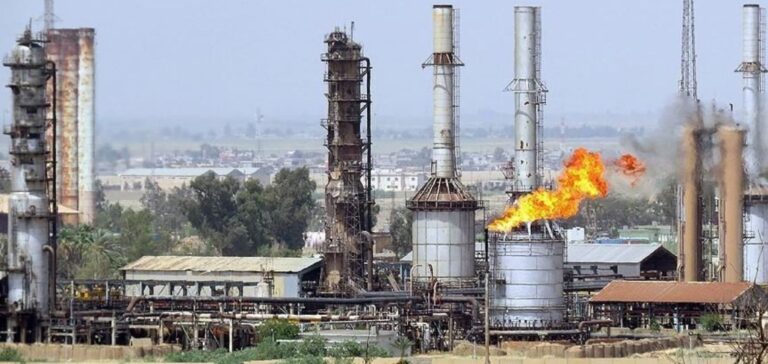The government of Niger, led by the military regime that has been in power for almost a year, recently announced a cut in fuel prices. From July 23, the prices of Super 91 petrol and diesel will be set at 499 FCFA (0.76 euro) and 618 FCFA (0.94 euro) per liter respectively. This measure comes after a period of economic and social tensions, exacerbated by sanctions and the suspension of international aid.
Economic and social context
In 2022, an increase in the price of diesel triggered strong opposition in this Sahelian country, where more than half the population lives below the extreme poverty line, according to the World Bank. The current decision to reduce fuel prices is aimed at easing household spending and cutting transport costs, with the hope of having a positive impact on the price of basic necessities. Niger’s economy was severely hit by the West African sanctions imposed after the coup d’état in July 2023. Although these sanctions were lifted last February, the country continues to suffer from the suspension of aid programs by several Western countries.
International support and persistent challenges
Despite this difficult context, the International Monetary Fund (IMF) is maintaining its support for Niger. The IMF recently announced the disbursement of $70 million to finance various programs, some of which focus on ecological transition. This financial support is crucial for Niger, an oil-producing country since 2011 with a modest production of 20,000 barrels per day at its Zinder refinery. At the end of June, the state-owned Société nigérienne du pétrole (SONIDEP) launched its first exploration and production operations in the country’s desert east, where a Chinese company has been extracting oil for over a decade. However, Niger’s oil exports are currently disrupted by a diplomatic row with Benin.
Perspectives and Alternatives
A pipeline of almost 2,000 km, designed to transport crude oil to the Beninese port of Sèmè-Kpodji, remains inactive due to the closure of the border for security reasons. This situation is forcing Niger, a landlocked country, to look for alternatives for its exports. The Niger government is now considering a longer, riskier corridor via Togo and Burkina Faso to bring its oil to sea. This decision to reduce fuel prices could have mixed effects. On the one hand, it could bring immediate relief to consumers and stimulate a slight economic recovery. On the other hand, logistical and diplomatic challenges persist, threatening the country’s long-term economic stability. In retrospect, these fuel price cuts in Niger underline the government’s efforts to alleviate domestic economic pressures while navigating a complex international landscape. The situation remains precarious, and the effectiveness of these measures will largely depend on future diplomatic developments and logistical infrastructures.





















